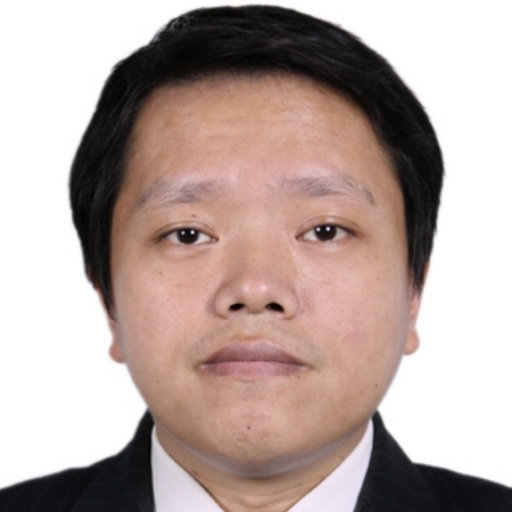Speaker 2023
Keynote Speaker I

Professor Juan Gabriel Brida
Universidad de la República, Uruguay
Speech Title: Economic growth and population dynamics: a discrete time analysis
Abstract: This paper reformulates and generalizes the classical Uzawa-Lucas model of economic growth and human capital accumulation by representing time as a discrete variable and using a population law with non-constant growth rate. In addition, the model is developed by using a more general utility function than the original. In this setup, the model can be represented by a four-dimensional dynamical system, which admits a unique optimal trajectory in human and physical capital and consumption. It is shown that there is a unique non-trivial equilibrium. The results of the study are compared with the original model in discrete time. Keywords. Uzawa-Lucas model; economic dynamics; human capital; economic growth; discrete time.
Bio: Juan Gabriel Brida started his appointment in Uruguay at the UdelaR in 2014 as Full Professor in Economic Dynamics. Prior of returning to Uruguay, he was Assistant and Associate Professor in Mathematics and Economics at the School of Economics and Management of the Free University of Bolzano (2004 - 2014). Previous to moving to Italy, he was assistant professor at the Universidad de la República (Uruguay) -1987 - 2000. Dr. Brida received his Ph.D. in Economics from the University of Siena, and his degrees in Mathematics and Mathematical Education from Universidad de la República and Instituto de Profesores “Artigas” (Uruguay) respectively. After more than twenty years in Economics, his research is heading further in Tourism Economics, Economic Dynamics and Economic Growth. (https://papers.ssrn.com/sol3/cf_dev/AbsByAuth.cfm?per_id=255515; access 18.01.2023).
Keynote Speaker II

Wenfeng Wang
International Academy of Visual Art and Engineering, London, UK
Title: Extension Prototypical Network for Few-shot Learning
Abstract: In this paper, we proposed a novel method based on extension distance for unsupervised meta-learning learning. Compared with previous algorithms, the network can also learn new classes and correctly classify them, and each class only requires a few shots for training. Among them, extension distance emerged as a new distance measurement method, which has obvious advantages over the previous Euclidean distance. This paper compares it with the prototypical network based on Euclidean distance and compares and analyzes the experimental results, the experiment that works best is the Miniimagenet dataset which improves accuracy by about 2.36%. The meta-learning method based on metric space is further explored, and experiments are carried out on three data sets and achieved good experimental results on MNIST, miniimagenet, and omniglot data sets.
Bio: Professor Dr. Wenfeng Wang is currently the editor in chief of International Journal of Electrical and Electronics Engineering (IJEEE) and International journal of Applied Nonlinear Science (IJANS). He is also a professor in Shanghai Institute of Technology. He is the director of International Academy of Visual Art and Engineering in London and the JWE Technological Research Center in Shanghai. He is also a tenured professor in IMT Institute in India and the director of Sino-Indian Joint research center of artificial intelligence and robotics. He was selected in 2018 as a key tallent in Ningbo Institute of Materials Technology and Engineering, Chinese Academy of Sciences. He is a reviewer of many SCI journals, including some top ones - Water Research, Science China-Information Sciences, Science of the Total Environment, Environmental Pollution, IEEE Transactions on Automation Science and Engineering and etc. He served as a keynote speaker of AMICR2019, IACICE2020, OAES2020, 3DIT-MSP&DL2020, NAMSP2021, ICCAES 2021, CSAMCS 2021 and etc.
Keynote Speaker III

Zaoli Yang
College of Economics and Management, Beijing University of Technology, Beijing China
Speech Title: Supporting online hotel booking: sentiment analysis of customer review and fuzzy cloud multi-criteria model
Abstract: With the vigorous development of e-commerce, consumers increasingly rely on online shopping. Online reviews have accordingly become essential support for consumers to make purchase decisions. However, the fierce competition of various e-commerce platforms and the excessive number of product reviews make purchasing decisions a challenging task for consumers; in particular, the differences in multiplatform reviews have caused confusion for consumers. This paper proposes a novel online hotel booking decision support algorithm can effectively reflect support, opposition, neutrality and hesitation sentiments and consumers’ behavioral characteristics. Online reviews are mined and analyzed using BiLSTM-attention first, and the corresponding attribute features and sentiment values of hotels are calculated. Considering the confidence level of sentiment values, the cloud model and T-spherical fuzzy set are integrated to define a novel T-spherical cloud (T-SC) concept. Then, due to the interactive impact of reviews from different platforms on consumer purchases, the operational interaction rules between T-SCs and a multilayer interaction Choquet integral operator under the T-SC environment are developed. In addition, multiple interactive information matrices with T-SC characteristics are established and converted into a comprehensive information matrix through the proposed operator. Finally, the validity of the proposed method is verified through an online hotel booking example with four hotels as the candidates set in Shanghai. The results show that seven attributes in the hotel reviews are clustered as the evaluation criteria, and the prediction accuracy of the seven attributes based on the proposed method is over 80%, or even above 90%, except for the “Facility”, which is 76.61%; Under the setting of attribute weight preference, the hotel reservation decision results can be obtained in line with the personalized needs of consumers. By comparative analysis, we also found that our method can handle online product decision problems under extreme or unusual review scenarios, and can automatically perform fine-grained sentiment analysis.
Bio: Zaoli Yang is an Associate Professor in Beijing University of Technology, Beijing China, and visiting scholar in The University of Edinburgh, UK, and Heriot-Watt University, UK. His research interests include intelligence decision supporting system, expert systems and decision support, information management, artificial intelligence, fuzzy set theory, data mining, and their application in various fields. His research has been published in refereed international journals, including European Journal of Operational Research, Annals of Operations Research, IEEE Transactions on Engineering Management, Technological Forecasting & Social Change, Journal of Business Research, Information Sciences, Applied Energy, etc. He has served as the Associate Editor of “Journal of Intelligent & Fuzzy Systems”, “Heliyon”, the Editorial Board Member of “Journal of Organizational and End User Computing”. In addition, He also has served as a reviewer for over 70 SCI/SSCI indexed journals.
Invited Speaker I

Dr Anum Shafiq
School of Mathematics and Statistics, Nanjing University of Information Science and Technology
Speech Title: Significance of Double stratified magnetohydrodynamic Marangoni Casson nanofluid: An application of Probable error
Abstract: The purpose of this study is to examine the impact of double stratification in the Marangoni convective flow of the Casson nanofluid model towards a surface. Because of the permeable surface, concentration and temperature gradients have driven Marangoni convective flow. The investigation is gathered using Brownian diffusion, Thermophoretic attribute, and double stratification in Marangoni convection Casson nanofluid. Heat and mass transfer are investigated using various physical flow parameters. Using some appropriate classical transformations, the nonlinear structure of the governing partial differential equations (PDEs) is transformed into nonlinear ordinary differential equations (ODEs). The Runge Kutta fourth-order algorithm is used to solve a modified set of ODEs using a numerical method. The purpose of the illustrative graphics is to show how certain flow parameters affect the profiles of velocity, temperature, and concentration. Nusselt numbers are arranged in tabular form to study the variance in heat transmission and its relevance in industrial zones. Results show that the velocity field experiences a rise as a result of the Marangoni ratio parameter. A decrease in fluid flow is the effect of inclined MHD. Additionally, some values of the correlation coefficient, r, are less than P.E.(r), demonstrating the correlation coefficient's statistical insignificance. It should be noticed that some correlation coefficients are outstanding and that there is a strong relationship between the parameters and the physical characteristics.
Bio: Anum Shafiq is currently an Associate Professor at the School of Mathematics and Statistics, Nanjing University of Information Science and Technology, China. Dr. Anum Shafiq is appearing in the world's Top 2% Scientists list of 2022 for the single year released by Stanford University and this list was published on 10th October 2022. She received her Ph.D. in 2016 from Quaid -i-Azam University Islamabad, Pakistan. She works as an Assistant Professor in department of Mathematics, in the prestigious universities of Pakistan for four years. After that she did postdoctoral research at North West University, South Africa. Her research is mostly focused on numerical methods for boundary value problems, implementation of computational techniques based on traditional as well as heuristic paradigms, Newtonian and non-Newtonian nanofluids flow and microorganisms, Multidisciplinary applications of Mathematics, etc. She is the winner of a number of awards and scholarships. She is an editorial board member of many reputed journals and has published more than 110 research papers in SCI-indexed journals with a research h-index of over 40 and citations over 4187 as per Web of Sciences. She is a potential reviewer of top-ranking research journals Dr. Shafiq acts as a resource person and gives invited talks at many workshops and conferences held at the national and international levels.
